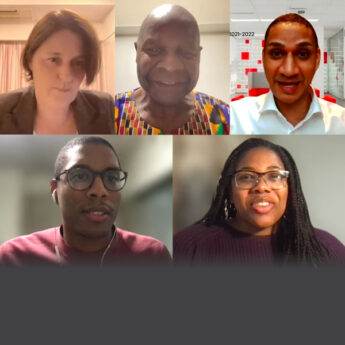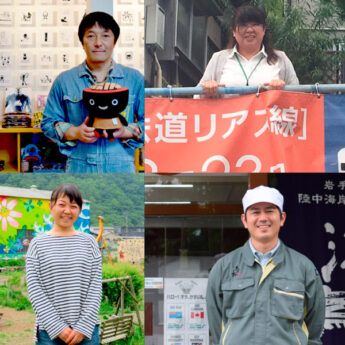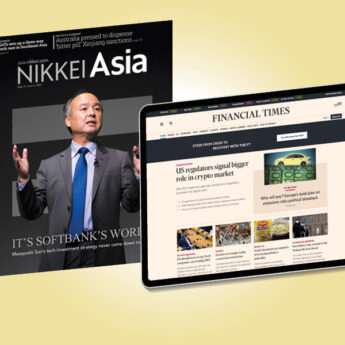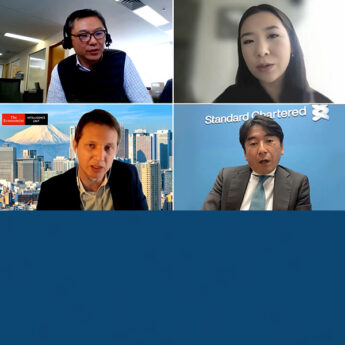What firms can expect in the current economic climate
- Bank of Japan’s goals for inflation may be reached
- Corporate tax and labour law changes to have pros and cons
- Government’s focus this year likely to be geopolitical concerns
On 20 January, the British Chamber of Commerce in Japan held a breakfast session, during which members sat enthralled. Holding forth was Japan expert and media adviser William Sposato.
Sposato presented a whirlwind assessment of the “three arrows” of Abenomics, Prime Minister Shinzo Abe’s strategy since 2012 to revive the Japanese economy via monetary easing, fiscal stimulus, and structural reform.
He began with the second arrow—fiscal stimulus—which he called a no-brainer tactic by the Abe administration that has been long practiced by the ruling party. He then moved on to arrow one—monetary easing.
This policy, Sposato explained, is in fact a manifestation of “Kurodanomics”, a strategy named after Haruhiko Kuroda, the governor of the Bank of Japan. When the plan was unveiled in April 2013, Kuroda announced his goal to double the monetary base over two years to achieve 2% inflation.
While likely to reach the target, concerns remain: the target may not be reached in the expected time; Kuroda may exceed his goal, thus realising runaway inflation; and, unexpected events, such as tanking crude oil prices, may scupper plans.
Sposato also said that crude oil prices are as likely to go up suddenly as they are to go down, putting Kuroda’s plans at further risk.
According to Sposato, a key impact of Kurodanomics is likely to be its effect on loosening the nation’s real cash holdings, said to total about ¥93trn—twice the comparable level in the US.
When the inflation rate is higher than the rate of return on investments, the issue is real interest rates, Sposato pointed out. Right now, he continued, Japan has positive real interest rates, which is good for savers.
What the Bank of Japan wants to do, however, is to reach the point of negative real interest rates, causing bank deposits or cash to lose value in real terms. This would encourage savers to seek higher-yielding investments. This may well happen, he observed.
But there is a downside to this. Should the rate of inflation continue to be higher than the rate of return, savers would continue to lose out. Moreover, Japan’s debt-to-GDP ratio, currently about 240% of annual GDP, would remain one of the highest in the world.
Meanwhile, the beneficiaries of high inflation would include the largest borrower of them all: the Government of Japan.
Moving on, Sposato said the third arrow—structural reform—was a complicated mishmash of ideas that include a revolution in robotics, increasing the participation of women in society, as well as labour and immigration reform.
Liberalisation of labour laws and corporate tax cuts, Sposato said, were likely to be double-edged swords: reform will mean firms can hire and fire with greater ease, but history suggests they will do mainly the latter.
Moreover, while corporations would welcome lower taxes, they would be unlikely to spend their profits on raising employee wages, which is something the Abe administration desires.
Sposato also made reference to potential headline-making events, including on-going Trans-Pacific Partnership negotiations, the diminishing role of the Japan Agricultural Cooperatives Group in politics as a whole, and the issue of military bases in Okinawa.
Turning to the stock market, he said one expects an attractive price–earnings ratio (the price per share divided by the annual earnings per share) and strong fundamentals for Tokyo Stock Exchange-listed firms.
Sposato was optimistic that the Government Pension Investment Fund, Japan—the largest pool of retirement savings in the world—will continue to show better management as more of it moves into the stock market.
But, while shareholder value is likely to improve with dividends going up on average, a lack of hostile activity in relation to mergers and acquisitions may mean that a great deal of the implicit value in Japanese firms remains locked up.
In closing, he said Abe’s main focus in 2015 may be geopolitical concerns rather than the economy.
When asked whether he was cautiously optimistic about Japan’s economic outlook in 2015, Sposato answered in the affirmative.






